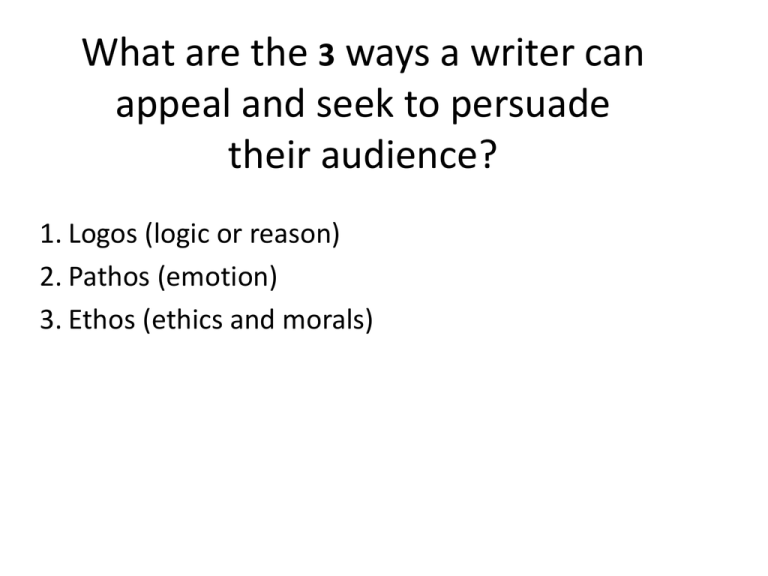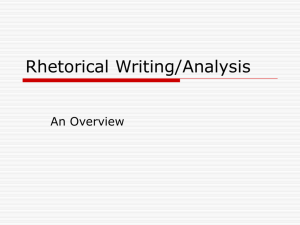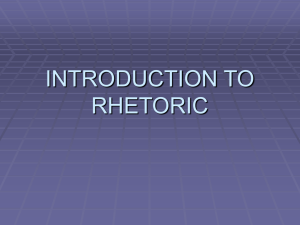What are the ways a writer can appeal and seek to persuade
advertisement

What are the 3 ways a writer can appeal and seek to persuade their audience? 1. Logos (logic or reason) 2. Pathos (emotion) 3. Ethos (ethics and morals) What is logos? Appeals to an audience’s sense of reason and logic, the speaker or writer intends to make the audience think clearly about the sensible and/or obvious answer to a problem Logos appeals to the audience with facts, statistics, definitions, historical proof, quotes from “experts.” What is pathos? Appeals to the audience’s emotions, the speaker or writer can make the audience feel sorrow, shame, sympathy, embarrassment, anger, excitement, and/or fear. Pathos appeals to the audience through the use of figurative language, imagery, vivid descriptions, an emotional choice of words, or examples that are designed to make you FEEL a certain way. What is ethos? the overall appeal of the speaker or writer himself or herself; it is important that this person have impressive credentials, a notable knowledge of the subject, and/or appear to be a likeable and moral person. Ethos appeals to the audience with a calm, trustworthy, seemingly sincere approach. The speaker uses good grammar and is well-spoken, and tells stories that are backed by general common sense and need to feel secure. What are rhetorical devices? • It is not only important what a speaker or writer has to say, but how he or she actually says or presents it. • Besides using devices you may already be familiar with, such as figures of speech (metaphor, simile, personification) and sound devices (alliteration, assonance, consonance), writers and speakers use many other rhetorical devices to communicate their message. What is an alliteration? • repetition of consonant sounds at the beginning of words • Example: Peter Piper picked a peck of pickled peppers What is an anaphora? repetition of a word or phrase at the beginning of successive phrases, clauses or lines Example: "Mad world! Mad kings! Mad composition!" What is an apostrophe? • a sudden turn from the general audience to address a specific group or person, either absent or present, real or imagined • Example: “Oh death, where is thy sting? Oh grave, where is thy victory?” What is a hyperbole? exaggeration for emphasis or for rhetorical effect Example: I died laughing What is a rhetorical question? • a question that is posed for emphasis, not requiring an answer • Example: "Aren't you glad you use Dial? Don't you wish everybody did?" What is a euphemism? a substitution of a more pleasant expression for one whose meaning may come across as rude or offensive Example: “He passed away,” rather than “He died.” 1). euphemism 2). anaphora a). “Wesee shall on the get beaches, c).e).“We’ll youfight when you back from Daisy delightfully decorated the dorm. 3). alliteration f). d). She b). “is ‘Isn’t so short, it atwinkle bit she unnerving uses a star…” that “Twinkle, little we shall fight on the landing image enhancement camp.” toothpick to what do the pole doctors they do ‘practice’?” 4). rhetorical grounds,call we shall fight invault. the fields question and in the streets…” “Spare me your ________! It’s fat camp for 5). hyperbole daddy’s chubby little secret!” 6). apostrophe




